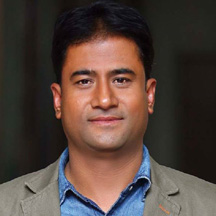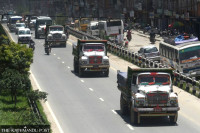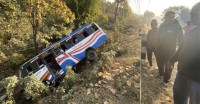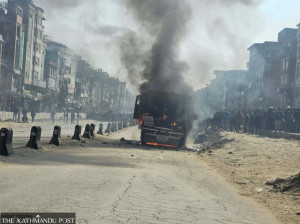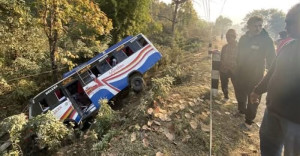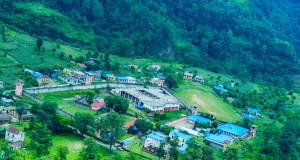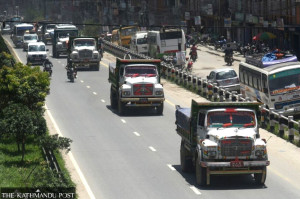Bagmati Province
Abused and forced to flee: How unchecked superstition displaced a family in Dolakha
Belief in superstition and the abuse of human rights that comes with it is widespread in this mountainous district of about 200,000 people.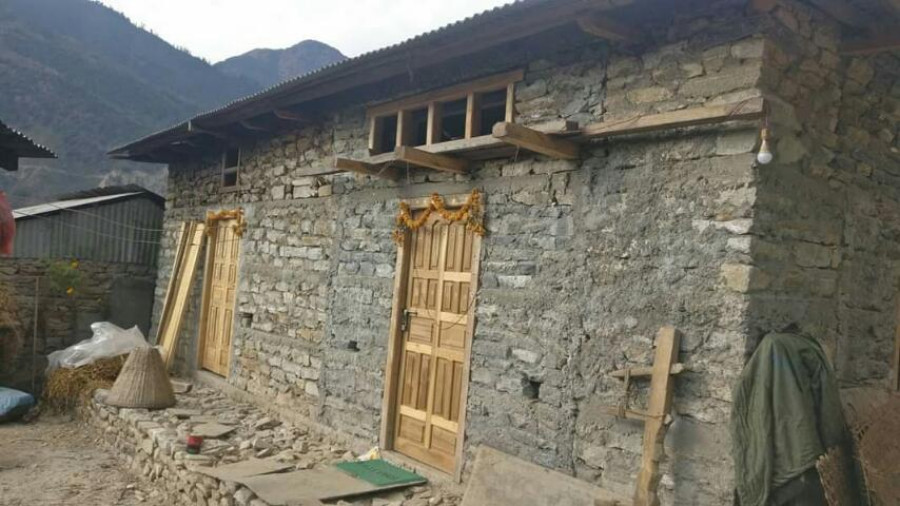
Rajendra Manandhar
All the doors and windows of Ratna Bahadur Shrestha’s home in Syakhu village are locked shut. The home looks deserted. Syakhu, one of the district’s remotest villages, shares its border with the Alampu village in Tibet. At one corner of this village, Ratna Bahadur’s home today remains unmanned; neither by his choice nor design.
When Ratna Bahadur was accused of practicing witchcraft not long ago, the family quietly endured the humiliation. But when the villagers also targeted his wife, Krishnamaya, accusing her of being a witch, the humiliation became unbearable, says Ratna Bahadur. The family locked their house and moved away.
Belief in superstition and the abuse of human rights that comes with it is widespread in this mountainous district of about 200,000 people. Seven incidents related to witchcraft allegations have been registered with the police this fiscal year alone.
In Syakhu, as in other remote villages in the district, traditional faith-healers are popular, as popular today as they were a decade ago. Whenever the villagers suffer from an ailment, they rush to these faith-healers, locally called dhami or jhankri. The dhamis at best prescribe them home-made medication, but more often accuse people of witchcraft and prescribe a puja—worship the lord of their faith—to keep the witches’ sorcery at bay.
There are about a dozen faith-healers in Syakhu, at Bigu Rural Municipality Ward No. 5, according to Purna Bahadur Khadka, a local. “Ratna Bahadur’s family was innocuous and vulnerable, which was the reason why they were targeted by the dhamis,” Khadka said. “Unfortunately, they have been forced to flee the village.”
The Shrestha couple was declared witches by a total of 113 people called by the local tole sudhar committee, a group that was founded purportedly to develop the village. A team from the National Human Rights Commission led by spokesperson Mohna Ansari visited the site a few days after the incident. Then the locals admitted to have violated human rights unwittingly.
Ratna Bahadur’s son, Bhaju, said that his parents were taken to Kathmandu after they were repeatedly beaten and abused by the villagers. “There was no option than to move away and save our lives,” Bhaju said. Krishnamaya is currently undergoing treatment in Kathmandu, where all the family members today live, according to Bhaju.
While incidents of grave abuse of human rights continue in the district, there’s little that is being done to control it. Recently, a 16-day campaign against violence against women took place in Charikot, the district headquarters. Shrestha’s case was discussed at the campaign where many argued that the incident has dampened the district’s image. Charikot often hosts programmes to discuss the issue. In one, called District Dialogue Group, Sirjana Karki, chair of Ashraya Kendra, which works towards providing shelter for the abused, said that many cases of human rights abuse don’t come to light in the district.
“There’s a pointed lack of security for the abused,” Karki said. “There’s a lack of safe homes and no effort goes into rehabilitating the abused in society.” Other rights activists present at the discussion said that the Shrestha couple had to flee to the Capital because there was no place in Dolakha they could take shelter in.
Speaking to the Post, Ratna Bahadur said faith-healers in his native village command an unshakeable authority. “Whenever the dhami calls you, you must go,” he said. “And once he declares something, it is never questioned.” After Ratna Bahadur’s case gained widespread attention, faith-healers in the village are currently in hiding. A lawsuit has been filed against nine other abusers. They, too, are currently on the run.




 14.24°C Kathmandu
14.24°C Kathmandu